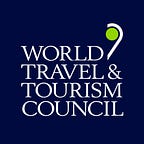Travel & Tourism welcomes action on biodiversity, but critical gaps remain
The WTTC’s Nature Positive Travel & Tourism Survey 2023 has found that an overwhelming majority of 92% of organisations surveyed welcome the UN’s Global Biodiversity Framework (GBF) and the call for corporate action on biodiversity.
However, there are still critical barriers to progress including funding gaps, skills shortages and a lack of time and capacity. Respondents highlighted the need for help in measuring and reporting impacts on nature and in building political support. Sector-specific tools — including information, guides and training — were mentioned as key requirements.
More than half of the companies (51%) said they plan to continue collaborating with the WTTC, NGOs and others to influence the actions of governments and policymakers. In response, the WTTC will be redoubling its efforts to encourage and facilitate partnerships with charities and community-based organisations as a way for travel businesses to fulfil their role as Guardians of Nature.
Travel providers understand their role as Guardians of Nature
The positive attitude towards to biodiversity reporting demonstrates the sector’s appreciation of its role in global nature protection — as demonstrated by the widespread adoption of the Vision for Nature Positive Travel & Tourism. While it remains important to educate travel professionals at all levels on specific biodiversity issues, only 4% of those surveyed said a lack of internal buy-in at leadership level was a significant obstacle.
When it came to funding commitments, the picture was more varied. Over a third (34%) said nature-positive action was already budgeted for among the organisation’s top three priorities. But around a quarter (24%) said it was budgeted for but not in the top three priorities and over a fifth (22%) said they had no budget for this at all. This is a group that clearly needs more engagement to avoid being left behind by the rapid progress being made on this topic by the sector in general.
But more support is needed on funding, staff skills and time
There are certainly some sticking points when it comes to implementation. Asked about biodiversity reporting requirements outlined in the GBF, nearly half of respondents (49%) felt they were prepared to provide these on a voluntary basis, but a third (33%) said they would like to do this but would struggle with capacity, skills gaps and staff time. Another 10% said that, while they welcomed the reporting requirements in principle, they would only take action if it became mandatory.
The most common barrier to taking nature-positive action was a lack of funds, cited by almost three quarters of organisations (72%). Just under half (47%) said a lack of staff time is a barrier to progress. Still, only 10% cited a lack of organisational priority as an issue, confirming that the importance of this issue is widely recognised. Clearly, access to financial support has a key role to play, and WTTC will continue to focus on facilitating this going forwards.
The need for more collaboration, tools and training
Generally, most companies wanted to enhance their ability to assess, and report impacts and to get help identifying priority locations for biodiversity monitoring. There was also a desire for case studies showing what some companies have already achieved, to assist others in the sector with their own transformations. This reaffirms the importance of WTTC’s role in sharing tools, training and experiences to help travel and tourism businesses progress their biodiversity strategies. The online Toolbox of Nature Positive Tourism Resources already provides valuable guidance and links to external resources, and planned updates will ensure that this hub keeps up to date with all the key developments in this area.
Finally, the survey highlighted the need for industry support to be inclusive of companies of all sizes, including those just starting out on their biodiversity journey, and to provide help identifying ambassadors of change within governments and countries where support for Nature Positive Tourism may be less developed.
Key messages
These findings make it clear that Nature Positive Tourism is here to stay, and that the sector is keen to get on board if it is given the tools and incentives to do so.
The WTTC will continue to play a key role in raising awareness of and gathering support for this issue. At the same time, we will be expanding what we offer members in terms of guidance, support and collaboration.
Travel businesses, meanwhile, need to follow through on their commitments to biodiversity, both in their budget allocations and, especially, by forging strong partnerships with nature protection organisations on the ground.
Governments and regulatory bodies should recognise the sector’s enthusiasm for these developments and also the challenges it faces, and provide an encouraging and enabling environment to support Travel & Tourism’s efforts to become a force for good.
Christopher Imbsen, Director of Sustainability, World Travel & Tourism Councul
